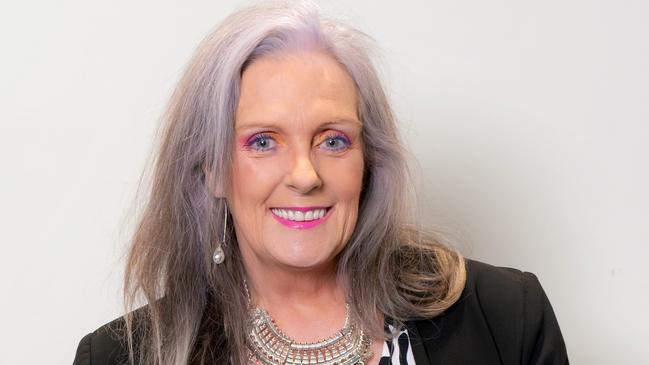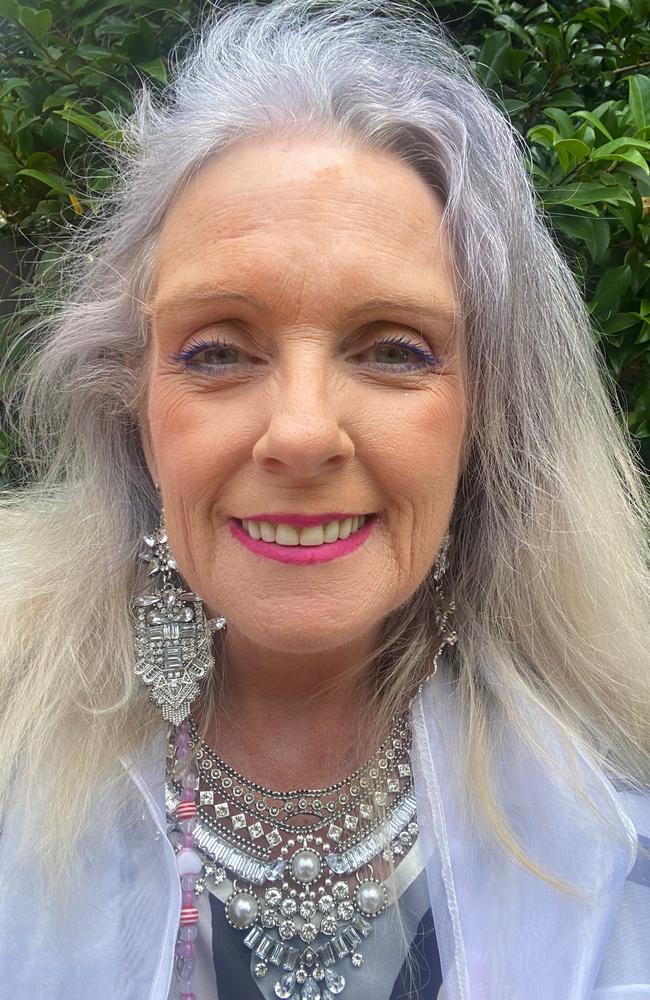Shock moment for Aussie mum: ‘I watched my son die in front of me’
An Australian woman who has spent decades as an unpaid carer going from “one crisis to another” has shared the moment she realised the system was broken.
Health
Don't miss out on the headlines from Health. Followed categories will be added to My News.
By the time Christina Johns’ son, A, was 13 years old, she knew something was wrong.
“In those days, no one talked about mental illness,” she tells news.com.au. “And single mums were incredibly looked down upon. When A started getting into trouble at school, and experimenting with drugs, people put it down to the fact that I was young and unmarried. No one would listen when I told them I thought there was something more sinister going on.”
Finally, when A reached his early twenties after Christine had been advocating for him for nearly a decade, what had been dismissed as “behavioural” problems were finally recognised for what they were – something Christina describes as “the motherload of mental health diagnoses”.
“A has treatment-resistant paranoid schizophrenia, as well as drug and alcohol addiction (known as dual diagnosis), with depression and severe social anxiety,” she says.
“I’ve been his full-time unpaid carer for the past 30 years, and he has been living with me over the last 15, as I’ve tried to keep him out of hospital.
“He has fallen through the gaps in the mental health system so many times that the only way I know how to keep him safe is to give up my own life to take care of him. I get 46 cents an hour as an unpaid carer through the carer’s pension, which is nowhere near enough to survive on.”
Australia is in the grips of a mental health crisis, and people are struggling to know who to turn to, especially our younger generations. Can We Talk? is a News Corp awareness campaign, in partnership with Medibank, equipping Aussies with the skills needed to have the most important conversation of their life.
Christina says Australia’s mental health system is so lacking that it relies on unpaid carers such as herself providing a safety net for people like A.
“Just getting A into hospital sometimes takes a co-ordination of making three or four or five phone calls to other doctors and psychiatrists, so that when he arrives, they actually pay attention to what you’re saying and understand that he’s not just in crisis in this moment, but rather this is an episode that has been building up over time,” Christina says.

“But even still, for a psych triage, you can sit for 48 hours in Emergency. I’ve sat beside his bed for two days, waiting to be admitted, with a police officer at the end of the bed monitoring him because everybody’s scared.”
And then there are the other times Christina sits beside A’s bed. The times when she isn’t sure he’ll walk away at all.
“A number of years ago now, I actually watched my son die,” she says.
“He had taken a concoction of unknown substances, and he turned up at my place and he wasn’t well, so I rushed him down to the hospital. At the time, the hospital was in the middle of a renovation, and so I managed to sit at the end of his bed in darkness the whole time that he was in the room, and I watched as they worked on him, and witnessed him die.”
Medical staff rushed to revive A, and he was put on life support.
“Thankfully, he came out of the coma and wondered what all the fuss was about,” says Christina, who has written a soon-to-be-published book about her life as a carer entitled Called to Care.
“It took me three months to write that chapter where I talk about this moment, because what I didn’t realise is how much unprocessed grief I had in my heart. Caring for someone in our mental health system means just moving from one crisis to another, without any time to process your own feelings.”
Christina says the degree to which unpaid carers are relied upon in the mental health system is proof it is broken.
“If every unpaid carer in Australia took a single day off, the entire system would collapse,” she says.
“The system in itself is so broken that no part of it works properly.”

“In the hospital system, there’s not enough beds, so I call it the ‘80/20 rule’, because mentally ill people present to hospital, doctors get them up to 80 per cent well, and then they send them home 20 per cent acutely unwell. Carers then have to manage that acuteness with no training and no support.”
Her comments echo the pleas of industry experts who have described an “overwhelmed” mental health system in crisis.
Medibank revealed it paid $219m last year in benefits for mental health-related hospital admissions – the highest on record.
And new figures obtained by news.com.au reveal that Lifeline has just had its busiest year on record to the end of February, with more than 1.1 million calls and almost 295,000 text and chats for help – up more than two per cent.
Meanwhile, frontline workers are quitting in droves.
In January, more than 200 psychiatrists resigned in NSW citing patient safety concerns, something the Royal Australian and New Zealand College of Psychiatrists (RANZCP) believes will have dire consequences in an already overworked system.

“The workforce shortages of psychiatrists will force patients to seek urgent care from other health providers and emergency departments, which are already stressed and at capacity,” said a RANZCP spokesperson in a statement published on its website.
“We are concerned that some people will find themselves in the judicial system as a consequence of lack of access to health care.”
It’s a fear Christina has seen play out time and time again in A’s life.
“He’s been in pretty much every prison in Victoria,” she says.
“He’s been in juvenile detention, holding cells, adult prison – he’s even been in prison over the border in NSW.”
Support for addiction – which accompanies other mental illnesses at rates of around 20 per cent, or as high as 50 per cent in schizophrenia – is also woefully underfunded, Christina believes.
“I remember one time when my son was so desperate for rehabilitation that there were no beds in the state unless I wanted to pay privately, which would have been around $20,000,” she recalls.
“Now they don’t recommend detoxing at home. It’s not something that is particularly safe. But we had no choice. I was at his bedside for three or four days. There were no beds in the state, and the waitlist was three to six months to get in anywhere.”
And while it’s clear to see the immediate impact of the system failing people like A, Christina says carers are like the frog in the slowly-boiling pot of water, with declining mental and physical health an unspoken crisis in the community.
“Just imagine being put into a pressure cooker and the pressure never being let out,” she says.
“We don’t get a break. I’ve watched friends die as unpaid carers, because I believe the body keeps the score. I’m 62. I’ve had a hip replacement, an ankle replacement, I have osteoarthritis, I’ve got chronic obstructive pulmonary disease (COPD), I’ve got asthma, and to top it all off, in 2015 I was diagnosed with WDPM, which is well-differentiated papillary mesothelioma. You would never have heard of it, because there’s only been 50 cases in the entire world.”
“My body has just started to break down from the sheer stress of my unpaid caring role and what I’ve been dealing with.”
Bek Day is a freelance writer
Originally published as Shock moment for Aussie mum: ‘I watched my son die in front of me’




